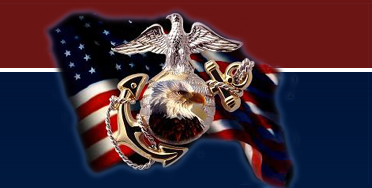|
DefenseWatch (sftt.org)
September 29, 2003
By David H. Hackworth
Recently in Iraq, an Army two-star general put himself in for the Silver Star, a gallantry award, for just being there, and for the Combat Infantryman Badge, an award designed for infantry grunts far below the rank of this division commander.
During the war, members of an Air Force bomber crew were all awarded the Distinguished Flying Cross for lobbing a smart bomb from 30,000 feet onto a house where Saddam was rumored to be breaking bread - even though Saddam's still out there somewhere sucking desert air. In 1944, the only way a bomber crew might have gotten the DFC would have been if it had wobbled back from Berlin on one wing and a prayer after a dozen-plus missions of wall-to-wall flak.
Here's another "Believe It or Not": When the Scuds were thumping down on Kuwait, a Navy two-star admiral and six of his flunkies were awarded the Bronze Star after a missile struck 10 miles away.
Not that these abuses of the awards system are anything new. The U.S. military's awards program - designed to recognize both our combat heroes' valor and the meritorious deeds by those hard-working supporters who bring up the rear - has never been exactly fair.
In the past, Joe and Jill have often gone unrecognized because there was no one left at the end of the battle to bear witness, or the paperwork got lost or wasn't written persuasively enough, or some eager-beaver officer in the chain of command stole their glory.
I know of two Medals of Honor - one in Korea and the other with a Navy unit in Vietnam- that shamefully went to still-living former officers when in fact their above-and-beyond deeds "witnessed" by sycophants were actually performed by grunts.
In the latter days of the Korean War and in Vietnam, Grenada, Panama, Desert Storm and Somalia, such abuses of military honors increased with each battle. In Vietnam, a dog was awarded the Bronze Star, and in Grenada, more medals were awarded than there were soldiers on that tiny island. In Desert Storm, Army infantry battalions that never saw a shot fired were awarded the coveted CIB.
Now warriors in Iraq are reporting that COs there are using a quota system for awards.
Sgt. Bill Casey, whose unit saw heavy combat in Iraq, says: "Our awards were not given out on heroism. They were based entirely upon rank and duty position. If you were a company commander, you got a Silver Star. If you were a platoon leader or platoon sergeant, you got a Bronze Star. If you did a good job at a level below that, you might get a Bronze Star. If you were a PFC (private first class), you probably didn't get a medal for valor. Every award was entirely based upon rank and duty position - rather than whether that person stood tall and continued to return fire or whether that person continued to bring the fight to the enemy or flat-out ran away when the bullets started flying."
These stats tell the story:
* The U.S. Air Force has approved more than 50,000 medals for operations in the Middle East.
* The U.S. Army, trying to catch up with the folks in blue who flew through all that imaginary Iraqi flak, has issued medals as though they were Cracker Jack prizes. So far they've pinned on tens of thousands of awards, from the coveted Distinguished Service Cross to the CIB. More than 5,000 Bronze Stars alone have been awarded. One-half the members of a 700-strong aviation squadron at Fort Stewart, Ga., were recently presented Bronze Stars and Commendation medals.
But as of Sept. 22, 2003, the U.S. Marine Corps has approved only 56 Meritorious Bronze Stars - 46 to officers, 10 to enlisted - and 15 Bronze Stars for valor - 11 to officers and four to enlisted - for their 70,000 fighters who kicked more than a little butt during the war in Iraq.
Kudos to our gallant Marine Corps for not following the quota system and to its top brass for refusing to play the Pentagon's public-relations medal-giveaway game.
But any way you count 'em, deserving grunts aren't being appropriately recognized by a sick, out-of-control system that desperately needs overhauling.
|



